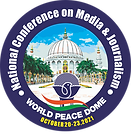SESSION UPDATES
Plenary Session 5 (International)
Fake News: Is Fact Checking the Solution | Plenary Session 5 (International)
Journalism is in a state of considerable flux. New digital platforms have unleashed innovative journalistic practices that enable novel forms of communication and greater global reach in the human history. But on the other hand, disinformation and hoaxes that are infamously referred to as “fake news” are accelerating and affecting the way individuals interpret daily developments. Fake news and sophisticated disinformation campaigns are especially problematic in democratic systems, and there is growing debate on how to address these issues without undermining the benefits of digital media. In order to maintain an open, democratic system, it is important that government, business, and consumers work together to solve these problems. Governments should promote news literacy and strong professional journalism in the society. The news industry must provide high-quality journalism in order to build public trust and prevent fake news and disinformation. Technology companies should invest in tools that identify fake news, reduce financial incentives for those who profit from disinformation, and improve online accountability. Educational institutions should make informing people about news literacy a high priority. Finally, individuals should follow a diversity of news sources, and be skeptical of what they read and watch.
Tuesday, 22 Sept 2020 (3.30 pm to 5.00 pm)
Dr Milind Patre - The learned speaker started by explaining what exactly is fake news in detail and also explaining how it grows, what social channels are most responsible for spreading it, its detrimental effect as well as its ethicality.
Shradhananda Sital - The learned speaker began by thanking Dr Patre for the way in which he clearly explained what exactly fake news is. He then spoke about how fake news is the main creator of suffering and attacks on minorities, something he is very well versed with being a human rights advocate. He blames most of this on the internet which ensures very quick facilitation of data and information transfer. Thus individuals have gone lax on the verification of information and as such more often than not, fake news is believed. He further posy=tulates that this is one of the most detrimental forces out there on the net and that he is eager to learn what the other panelists might suggest as steps to be taken to curb fake news spreading and enhance fact checking mechanisms.
Paul Katuse - The learned speaker began by quoting the example of his home country of Kenya where when there is a mistake made in the news, then the radio channels usually ensure that an apology is offered. He wishes to make the journalists responsible for the news they put out. He then spoke of the similarities between his country and India and notes that both the governments are lethargic. He also notes that most fake news is symbolic of a deeper problem that is being manifested via face news. The governments should pay close attention to fake news to understand the undercurrent of truth upon which the news is based.
Neil Dougan - The learned speaker began by stating how fake news has been around for as long as civilization itself. The Romans used it to defame their enemies and to forward their own agendas. Then he explained how fake news is still used on a macri level by nations to forward their agenda. Then he states that the six largest parties in India were all censured for putting out fake news in the last elections. He also quotes Voltaire to say that find out who you cannot criticize to know who is in power. He states these to ensure that all viewers understand that no one is above fake news. He postulates that in order to solve this problem, it must be studied better and what makes it so prolific and so inflammatory and so believable must be understood in order to defeat it. He states that with the digital age progressing exponentially, this problem will become amplified with time and as such there must be countermeasures taken from now itself.
Victoria Hamah - The learned speaker began by expounding on the truly terrific power that the media wields by being able to influence those who watch it in the way they want. Thus, the problem of fake news gets compounded when in the hands of someone skilled who knows how to manipulate the crowds. The speaker believes that this is because the question of ownership of the media is not addressed well. So far, the media is owned by corporations for whom the bottom line is the defining character of their kind. Thus, if that ownership is made more accountable then fake news shall decrease in its impact. The speaker also believes that fake news has been around for ages and will be around too. She believes that the structure of the present media is designed with a view to promote the policies of its corporate owners and not of disseminating information that affects people.
Margaux Solinas - The learned speaker started by stating that the job of a fact checker is implied with the job of a journalist but that in implementation this has been found wanting. She then traced the history of fact checkers in modern media and informed the viewers that the first time fact checking became an official guideline and a job was in the 1920’s with TIME magazine. She also stated how laws about fact checking are being followed by quite a few western nations, though with varying degrees of severity and implementation. She then elaborated on the pragmatic reasons why individuals go for fake news and this has partially the fault of the heavy pressure on journalists to be the first to break a story.


